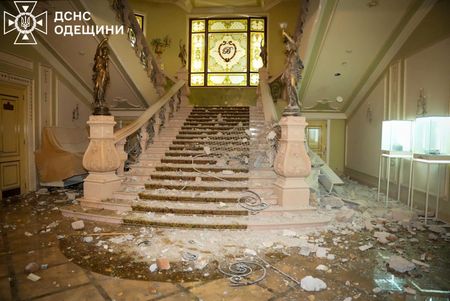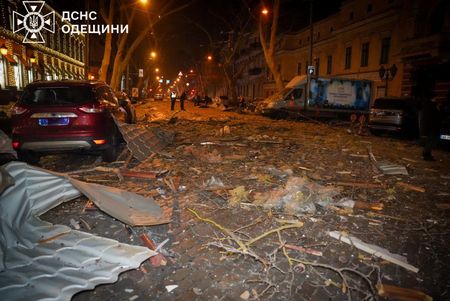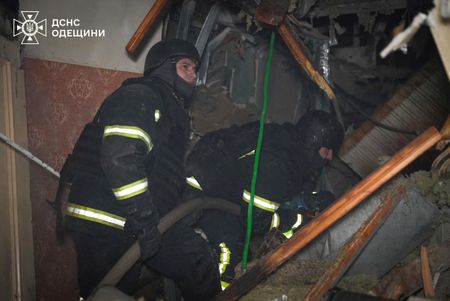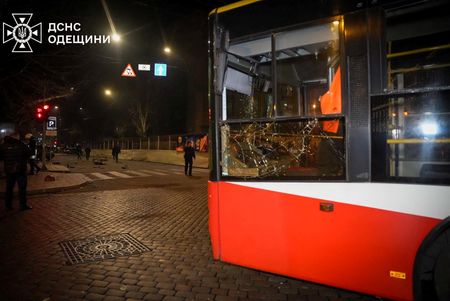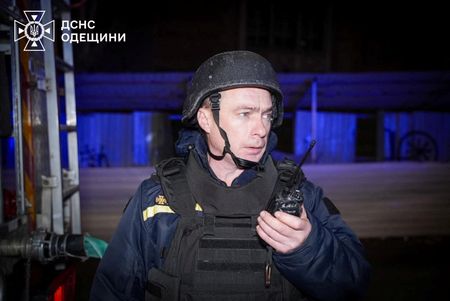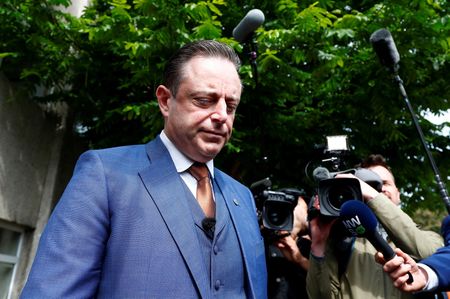(Reuters) -Russian forces launched missiles on the centre of Ukraine’s Black Sea port of Odesa, a UNESCO World Heritage site, seriously damaging historic buildings and injuring seven people, local officials said.
President Volodymyr Zelenskiy said the attack was “a deliberate strike” that underscored again the need to strengthen Ukraine’s air defences.
He said Norwegian diplomats had been among those “who were in the epicentre of the strike” in the historic district.
Odesa regional governor Oleh Kiper said seven people were injured and emergency crews remained at the scene.
Online pictures posted by Kiper and by Odesa Mayor Hennady Trukhanov showed the lobby and other parts of the Hotel Bristol, a luxury landmark built at the end of the 19th century, reduced to rubble.
The Odesa Philharmonic concert hall, opposite the hotel, suffered damage with many of its windows smashed.
Online video showed fragments strewn on a street several hundred metres (yards) away near the opulent opera house from the same era. Museums in the district also suffered damage.
Kiper told national television that three explosions had resounded at intervals, which he described as a “well-established practice” by the Russian military of repeated attacks on the same target.
“However, in this case a missile capable of penetrating concrete was used,” he said while standing in a street near emergency crews.
“This means it was deliberately aimed at a civilian hotel to destroy the floors and structures inside, causing destruction and, of course killing civilians staying there at the time.”
Zelenskiy, speaking in his nightly video address, said the attack was staged “directly on the city, on ordinary civilian buildings.”
“Again and again, air defence is the top priority. We are working with all our partners to provide more protection for our country.”
Zelenskiy said a meeting of Ukraine’s command had focused on improving weapons systems and speeding up deliveries.
“We need faster deliveries and greater numbers of systems and weapons which will enable us to save the lives of more of our soldiers, our people,” he said.
“More orders for drones. More investments for the development of robotic systems. And more orders for basic weapons.”
(Reporting by Ron Popeski and Oleksandr Kozhukhar; Editing by Sandra Maler)

